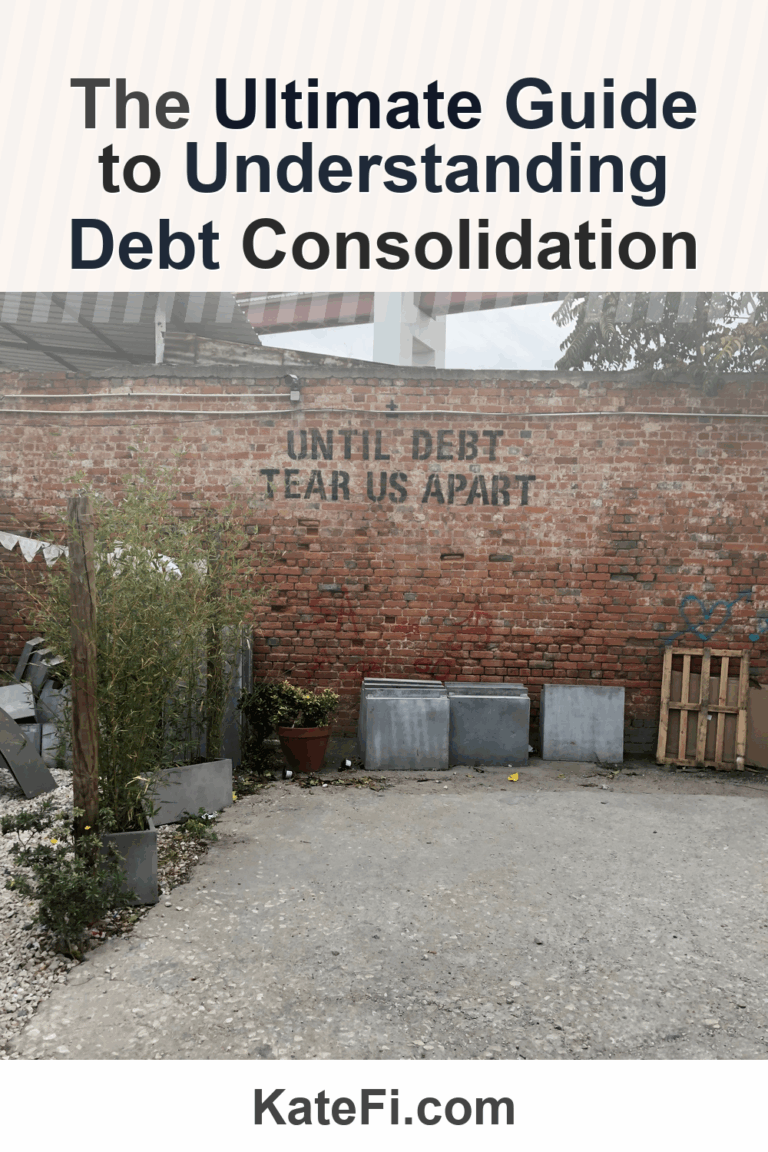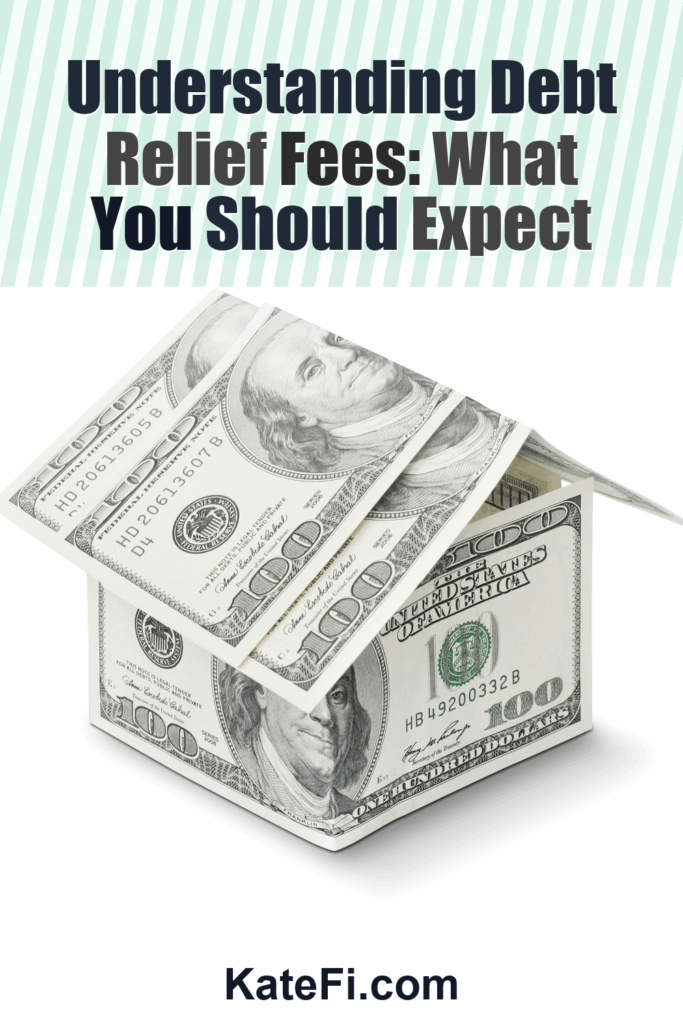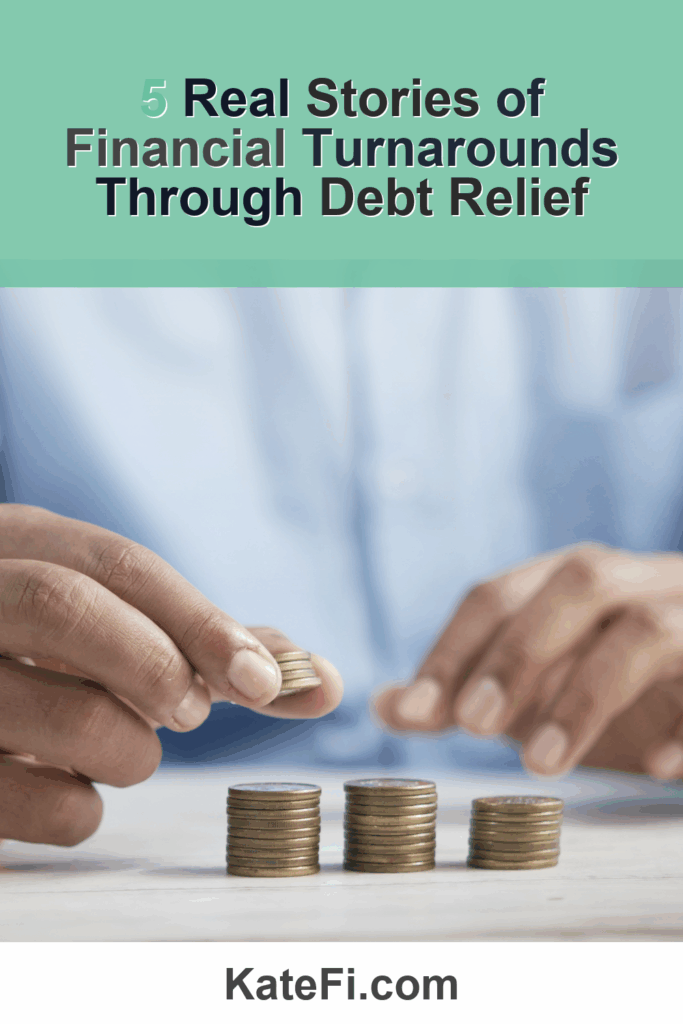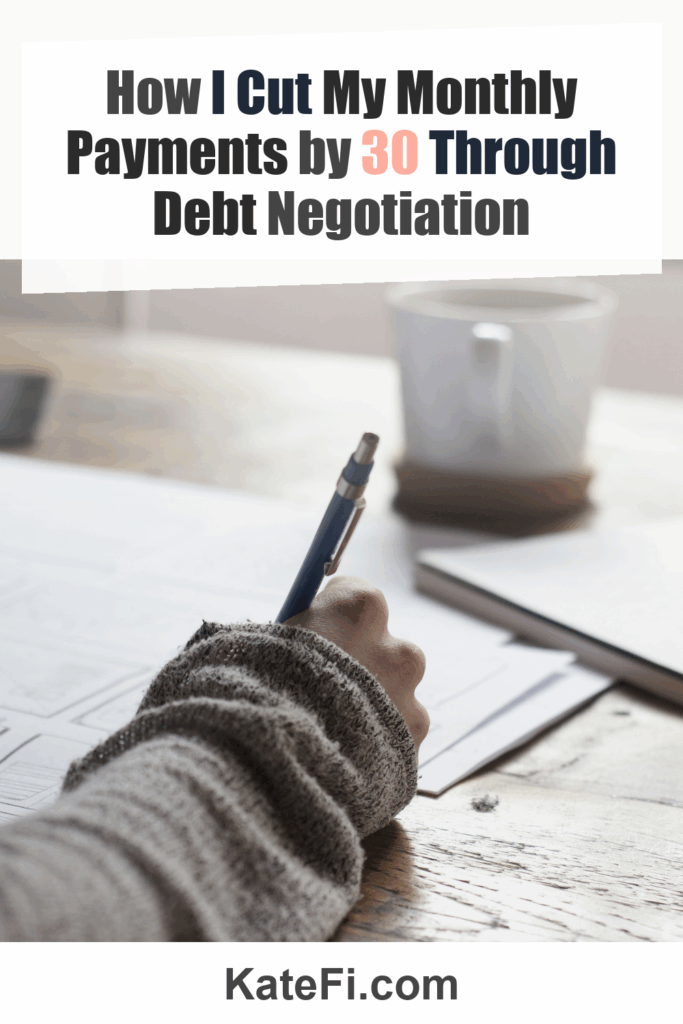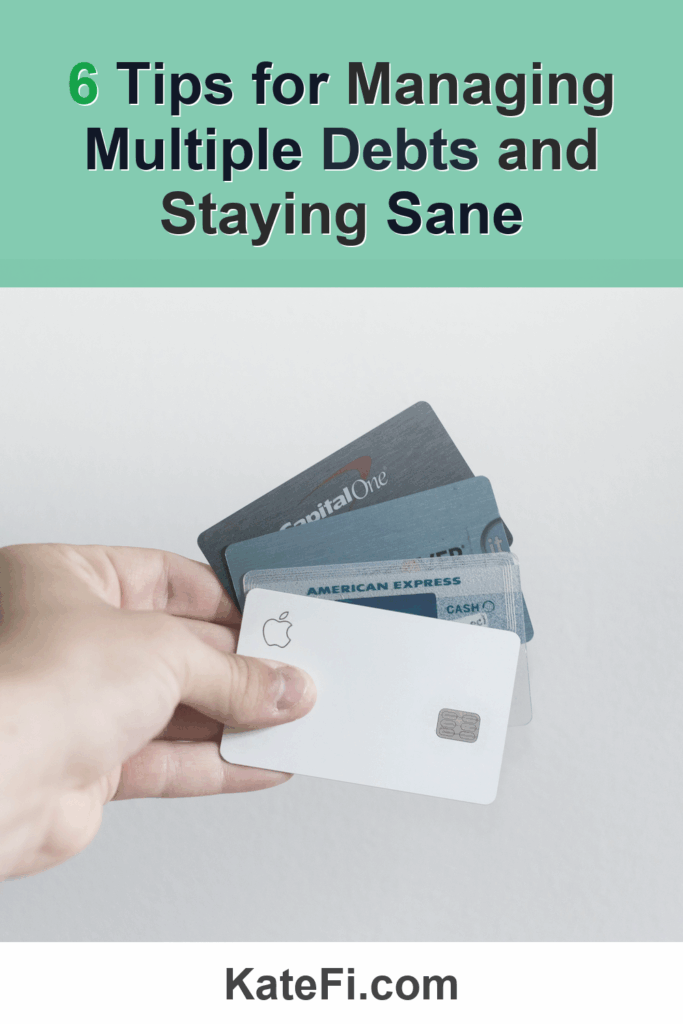What You’ll Learn on the Call
- Estimated timeline and monthly payment range
- How credit may be affected in the short term
- What documents to gather to move faster
Love our content? Show your support by following us — pretty please!🥺
FOLLOW ON PINTEREST
Hi! I’m Kate, the face behind KateFi.com—a blog all about making life easier and more affordable.
Not available in IL, KS, OR, TN, UT, WV.
The Ultimate Guide to Understanding Debt Consolidation
In a world where debt can feel overwhelming, many individuals find themselves seeking solutions to regain control of their finances. Debt consolidation is one of the most commonly explored options, but what does it really entail? And how does it stack up against other strategies like debt settlement and debt management plans (DMPs)? In this guide, we will take you through the intricacies of debt consolidation, alongside a compelling case study that highlights the importance of finding the right solution for your unique financial situation.
A Real-Life Case Study: Sarah’s Debt Dilemma
Meet Sarah, a 32-year-old teacher living in Chicago. Over the years, Sarah accumulated a considerable amount of debt through student loans, credit cards, and a personal loan for unexpected medical expenses. By the time she turned to us for help, Sarah had accrued almost $30,000 in unsecured debt, with monthly payments consuming nearly half of her take-home pay.
Feeling stressed and overwhelmed, Sarah initially thought about negotiating a settlement on her credit card debts. However, her financial counselor advised her to consider debt consolidation as a more beneficial option. The comparison between these methods became crucial for Sarah in understanding her path to financial freedom.
Understanding Debt Consolidation
At its core, debt consolidation involves combining multiple debts into a single loan with one monthly payment. This method often simplifies the repayment process, potentially offers a lower interest rate, and can improve cash flow. Here are some key aspects of debt consolidation:
- Single Payment: Instead of juggling multiple payments, you manage just one.
- Lower Interest Rates: If you qualify, you may secure a lower interest rate than your existing debts.
- Fixed Payment Schedule: Most debt consolidation loans come with a fixed repayment period, allowing you to plan your budget accordingly.
#### Who Should Consider Debt Consolidation?
Debt consolidation may be a fitting solution for individuals who:
- Have Multiple Debts: If you’re managing several credit accounts, consolidating can simplify your finances.
- Possess Good Credit: Better credit scores often lead to lower interest rates.
- Want Predictability: If you prefer having a structured payment plan, consolidation is ideal.
The Comparison: Debt Consolidation vs. Debt Settlement vs. Debt Management Plans (DMPs)
While debt consolidation can be a great option, it’s essential to understand how it differs from other debt relief strategies. Below is a brief comparison to help clarify:
| Method | Description | Pros | Cons |
|---|---|---|---|
| Debt Consolidation | Combines multiple debts into a single loan | Simplifies payments, potentially lower interest | May require collateral, depends on credit |
| Debt Settlement | Negotiating a lower total payment with creditors | Can reduce total debt, fast results | Affects credit score significantly, potential legal issues |
| Debt Management Plan | Works with a credit counselor to pay off debts | Professional help, fixed monthly payments | Can take longer to resolve debts, may include fees |
#### Understanding Debt Settlement
Debt settlement can often seem appealing because it promises to reduce your total debt amount. In Sarah’s case, she considered this option but learned that it can severely impact credit scores and might involve negotiations that lead to further complications with creditors.
Debt settlement generally involves making an offer to pay less than the full amount owed. This can often result in a larger portion of the debt being forgiven; however, it’s crucial to understand that this strategy can leave a negative mark on your credit report and may have tax implications as forgiven debt may be considered taxable income.
#### The Role of Debt Management Plans (DMPs)
Debt management plans, often administered by credit counseling agencies, can help individuals repay their debts through a structured repayment plan. They typically work by negotiating lower interest rates with creditors and combining debts into one monthly payment. However, this option may take longer and often comes with fees.
Lessons Learned from Sarah’s Journey
After consulting with a financial advisor, Sarah decided to pursue debt consolidation over debt settlement or a DMP. Here are a few key lessons learned from her experience:
- Know Your Credit Score: Understanding your credit score can help you gauge the best consolidation options available to you.
- Explore All Options: Always consider all debt relief strategies and their long-term implications before making a decision.
- Ask the Right Questions: Engaging with a financial counselor can help clarify the best route to take.
Questions to Ask a Debt Counselor
When you decide to consult a debt counselor, asking the right questions can lead to a more informed decision. Here are a few questions that Sarah found particularly helpful:
- What types of debt relief options do you recommend based on my financial situation?
- How will each option affect my credit score in the short and long term?
- Are there any fees involved with the debt consolidation process?
- Can you help me understand the timeframe for resolving my debt with this option?
#### Preparing for Your Consultation
To streamline your consultation process, gather the following documents:
- Current Credit Report: This will help the counselor assess your credit standing.
- Income Statements: Include your pay stubs or any other source of income.
- Debt Statements: Gather statements for all your debts, including balances, interest rates, and monthly payments.
- Monthly Budget: Document your income versus your expenses to give a complete picture of your finances.
The more information you provide, the better the counselor can assist you.
Credit Impact: What to Expect
As with any financial strategy, it’s vital to consider the potential impact on your credit score. Consolidation itself can help improve your credit utilization rate, leading to a higher score if managed correctly. However, if you miss payments or fail to fulfill the terms of the consolidation, you may face negative repercussions.
Before proceeding with any debt relief option, consult with a financial expert who can help you weigh the risks and benefits based on your unique circumstances.
Take Control of Your Financial Future
If you’re ready to take the first step towards reclaiming your financial health, don’t hesitate to reach out for help. At KateFi, we provide free consultations to discuss your options and determine the best path forward.
✅ See If You Qualify for Debt Relief
Conclusion
Navigating debt can be daunting, but understanding your options—debt consolidation, debt settlement, and debt management plans—will empower you to make informed choices. Take a cue from Sarah’s experience: understanding the nuances of each strategy is vital for creating a sustainable financial future.
If you’re feeling overwhelmed by debt and need guidance, remember that professional help is just a click away.
✅ See If You Qualify for Debt Relief
Important: This content is for education only—not legal, tax, or financial advice. Results and eligible programs vary by situation and state. Fees apply if you enroll and complete a program. Debt relief can affect credit; missed payments may lead to collections/lawsuits. Not available in IL, KS, OR, TN, UT, WV.
Start your journey to financial wellness today!
👉 Start Your Free Debt Relief Review
Not available in IL, KS, OR, TN, UT, WV.
Lower Your Unsecured Debt
If you have $5,000+ in credit card or personal loan debt, a free consult can review options like settlement or hardship plans.
- One-on-one call to review your debts and goals
- See potential monthly payment reductions
- No obligation to enroll
Not available in IL, KS, OR, TN, UT, WV.
Understand pros/cons of settlement vs consolidation vs DMP for your exact mix of debts.
Not available in IL, KS, OR, TN, UT, WV.

